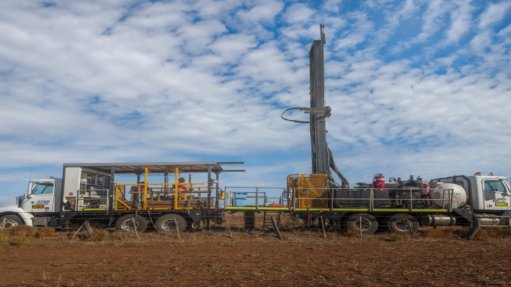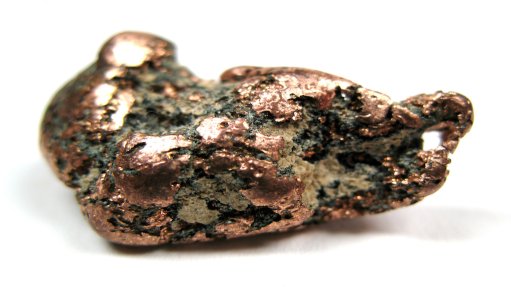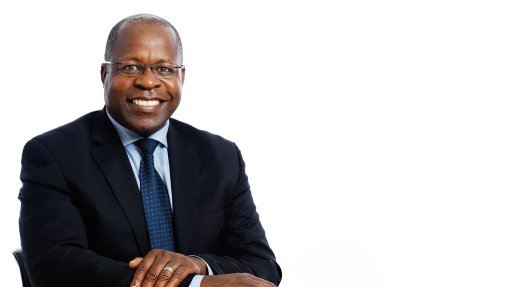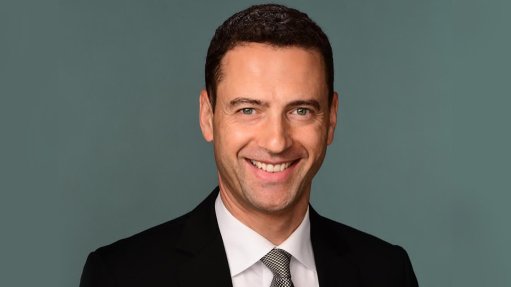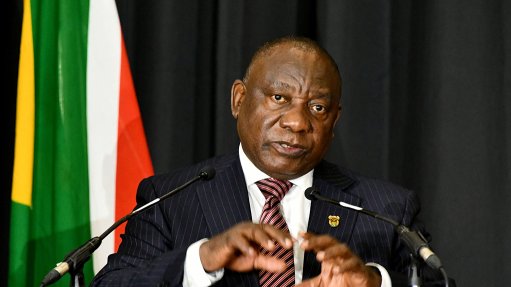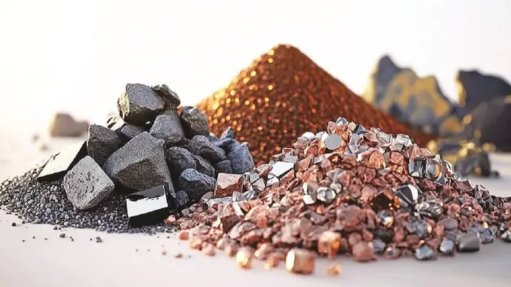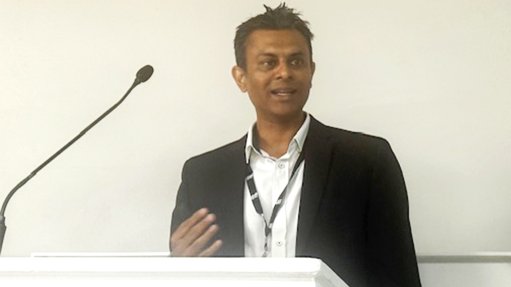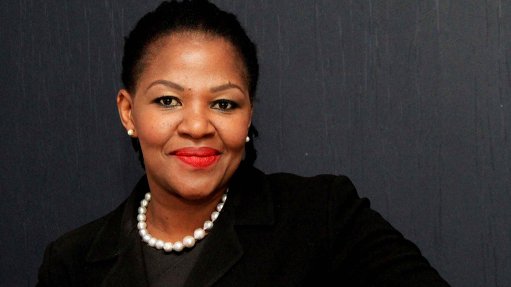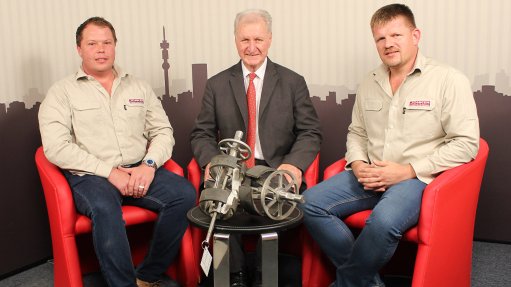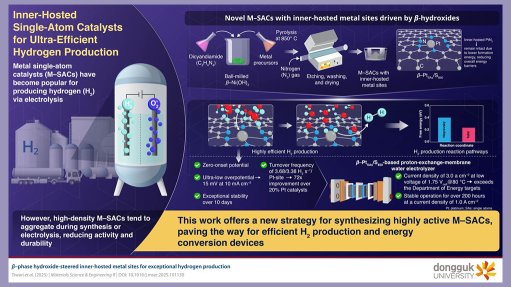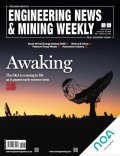Artisanal mining, geopolitical milieu remain challenges
Artisanal mining in West Africa, as well as an unstable geopolitical environment, remain core challenges to mining investment in the area, states Western Australia-based project developer Sarama Resources.
“As noted by a number of key industry players, artisanal mining is becoming pervasive and more structured – it is more organised and better funded than it has ever been before,” says Sarama president and CEO Andrew Dinning. Artisanal mining can create friction between artisanal miners and local communities, as well as industrial miners.
Sarama has an exploration and development focus in Burkina Faso, on the southern Houndé greenstone belt, located about 360 km south-west of the capital, Ouagadougou. The company’s landholding in Burkina Faso totals 21 properties and covers 2 900 km2. These properties include Sarama’s flagship properties, the South Houndé and ThreeBee gold projects.
Governments across Africa, and increasingly in West Africa, are struggling to deal with the complex array of social and economic issues around artisanal mining and, in some cases, find them insurmountable, Dinning says, adding that “it often has a major [adverse] impact on local communities and the environment, potential government revenues as well as investment and operations of exploration and mining companies”.
Artisanal mining has long posed a challenge to mining in Africa, with natural resources governance-focused nongovernment organisation Partnership Africa Canada advising the Malian, Burkinabe and Ivorian governments to decriminalise artisanal mining last year, as this would enable them to control the areas where artisanal miners work and increase revenue streams.
In Burkina Faso, the Artisanal Gold Council (AGC) is working to bring positive changes to the country’s artisanal gold sector in innovative ways through the Global Opportunities for the Long-Term Development of the Artisanal and Small Scale Gold Mining Sector (ASGM) project, which will run from 2018 to 2023.
The project is aimed at reducing mercury use in ASGM mining and improving the lives of mineworkers, in part, by developing responsible gold value chains that provide better incomes and opportunities to mineworkers, while incentivising responsible ASGM production.
The AGC will help to develop new financial tools that will enable artisanal miners to sell gold more directly to the domestic and international market while capturing a greater share of the value of the gold they produce. AGC is partnering with the Burkina Faso Ministry of Mines and Energy, and the Ministry of the Environment to regulate artisanal mining. This is one of many projects organised by the AGC to address artisanal mining in Africa. Additional projects organised by AGC will address artisanal mining in Senegal, Guinea, Gabon, Mali, Ghana, Sierra Leone, Nigeria and Tanzania.
Moreover, ongoing political unrest in northern Mali is moving across borders, further impacting on mining risk profiles in neighbouring countries. “The various challenges being experienced in the region and generally across the continent get factored in when investors are assessing opportunities,” Dinning points out, suggesting that investors take note of local conditions when making decisions to invest in certain areas, countries and companies.
The ever-changing environment means investment capital, which is highly mobile, can and does shift between jurisdictions as the perceived risk-reward equation evolves with changing geopolitical and fiscal regimes.
Sarama in West Africa
Sarama is focusing on the exploration and development of their projects in West Africa.
Burkina Faso is still a draw card for many investors and mining companies, as it has a competitive mining code, ten operating gold mines and significant exploration and development potential remain.
“Sarama has set some major objectives for the year, and we have been encouraged by the exploration results we are receiving and the progress toward achieving our objectives,” Dinning states.
Sarama’s flagship property, the South Houndé project, hosts a resource of 2.1-million ounces of gold. The company has a joint venture (JV) with Acacia Mining, which has spent more than $10-million, earning a 50% interest in the project, and which has committed a further $3.7-million to exploration in 2018. Sarama views this project as integral to the development of the southern extent of the Houndé gold belt where there are a number of active players undertaking significant levels of exploration.
Meanwhile, at the ThreeBee project, which is 100%-owned and joins the South Hounde project to the north, the company is relogging core and exploring new targets and extensions to the Bondi gold deposit, which it acquired from Canadian exploration and development company Orezone Gold in 2017. A mix of air core and reverse circulation drilling started at the project in May and is ongoing.
Further, Sarama has amalgamated a group of permits in the neighbouring Banfora greenstone belt to establish the new 100%-owned Koumandara gold project. First pass ‘gold in soil’ surveys were completed in the first half of this year, with further infill work undertaken after encouraging initial results, Dinning explains.
Sarama also holds a 30% JV interest in the Karankasso project, in Burkina Faso. The project is operated by a Canadian junior exploration company and has a modest resource delineated and continues to be in exploration phase.
While there are many challenges facing West Africa, mining in the region continues. “Burkina Faso is one of the largest gold producers in Africa and, although the government has made some adjustments to the mining code, it still remains competitive and new gold discoveries continue to be made and mines continue to be built,” Dinning states.
The challenges facing West Africa are not insurmountable and opportunities remain for those companies who are “willing to ride the ups and downs” that the industry has, and continues, to experience, he concludes.
Article Enquiry
Email Article
Save Article
Feedback
To advertise email advertising@creamermedia.co.za or click here
Announcements
What's On
Subscribe to improve your user experience...
Option 1 (equivalent of R125 a month):
Receive a weekly copy of Creamer Media's Engineering News & Mining Weekly magazine
(print copy for those in South Africa and e-magazine for those outside of South Africa)
Receive daily email newsletters
Access to full search results
Access archive of magazine back copies
Access to Projects in Progress
Access to ONE Research Report of your choice in PDF format
Option 2 (equivalent of R375 a month):
All benefits from Option 1
PLUS
Access to Creamer Media's Research Channel Africa for ALL Research Reports, in PDF format, on various industrial and mining sectors
including Electricity; Water; Energy Transition; Hydrogen; Roads, Rail and Ports; Coal; Gold; Platinum; Battery Metals; etc.
Already a subscriber?
Forgotten your password?
Receive weekly copy of Creamer Media's Engineering News & Mining Weekly magazine (print copy for those in South Africa and e-magazine for those outside of South Africa)
➕
Recieve daily email newsletters
➕
Access to full search results
➕
Access archive of magazine back copies
➕
Access to Projects in Progress
➕
Access to ONE Research Report of your choice in PDF format
RESEARCH CHANNEL AFRICA
R4500 (equivalent of R375 a month)
SUBSCRIBEAll benefits from Option 1
➕
Access to Creamer Media's Research Channel Africa for ALL Research Reports on various industrial and mining sectors, in PDF format, including on:
Electricity
➕
Water
➕
Energy Transition
➕
Hydrogen
➕
Roads, Rail and Ports
➕
Coal
➕
Gold
➕
Platinum
➕
Battery Metals
➕
etc.
Receive all benefits from Option 1 or Option 2 delivered to numerous people at your company
➕
Multiple User names and Passwords for simultaneous log-ins
➕
Intranet integration access to all in your organisation






